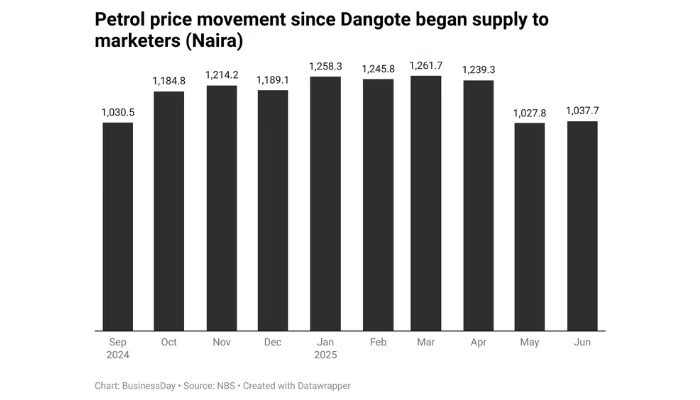launch over ten months” loading=”lazy” class=”pl” />
Analyzing Petrol Price Volatility Since the Launch of Dangote Refinery
In September 2024, the Dangote Refinery made headlines by entering the Nigerian petrol market as a direct supplier. This milestone sparked optimism across the country, with many anticipating more stable fuel prices and reduced dependency on imports.
Fluctuating Petrol Prices: A Closer Look at Ten Months of Market Dynamics
Despite initial hopes, the past ten months have witnessed no fewer than ten significant petrol price adjustments. This pattern highlights the ongoing challenges within Nigeria’s fuel sector, even with the presence of a major domestic refinery. Factors such as global crude oil price shifts, currency exchange rates, and local distribution costs continue to influence retail petrol prices.
Understanding the Impact of Dangote Refinery on Nigeria’s Fuel Economy
The Dangote Refinery, touted as Africa’s largest single-train refinery, has the capacity to process 650,000 barrels of crude oil daily. Its debut was expected to drastically reduce Nigeria’s reliance on imported petrol, which historically accounted for over 80% of the country’s fuel consumption. However, the refinery’s integration into the supply chain has revealed complexities, including logistical bottlenecks and regulatory hurdles that affect pricing stability.
Comparative Insights: Global Fuel Price Trends and Local Realities
Globally, petrol prices have been volatile due to geopolitical tensions and fluctuating crude oil production levels. For instance, in 2024, international petrol prices saw an average increase of 15% compared to the previous year. Nigeria’s petrol price swings mirror these global trends but are further compounded by domestic factors such as inflation and infrastructure challenges.
Looking Ahead: Strategies for Achieving Price Stability in Nigeria’s Fuel Market
To mitigate frequent price changes, experts suggest enhancing supply chain efficiency, improving regulatory frameworks, and investing in alternative energy sources. Additionally, transparent pricing mechanisms and better coordination between the refinery, government agencies, and distributors could foster a more predictable petrol market.
As Nigeria continues to navigate the complexities of its fuel sector, the Dangote Refinery remains a pivotal player. Monitoring its influence on petrol pricing will be crucial for stakeholders aiming to achieve long-term energy security and economic stability.























0 Comments